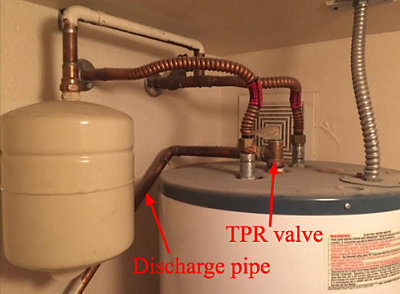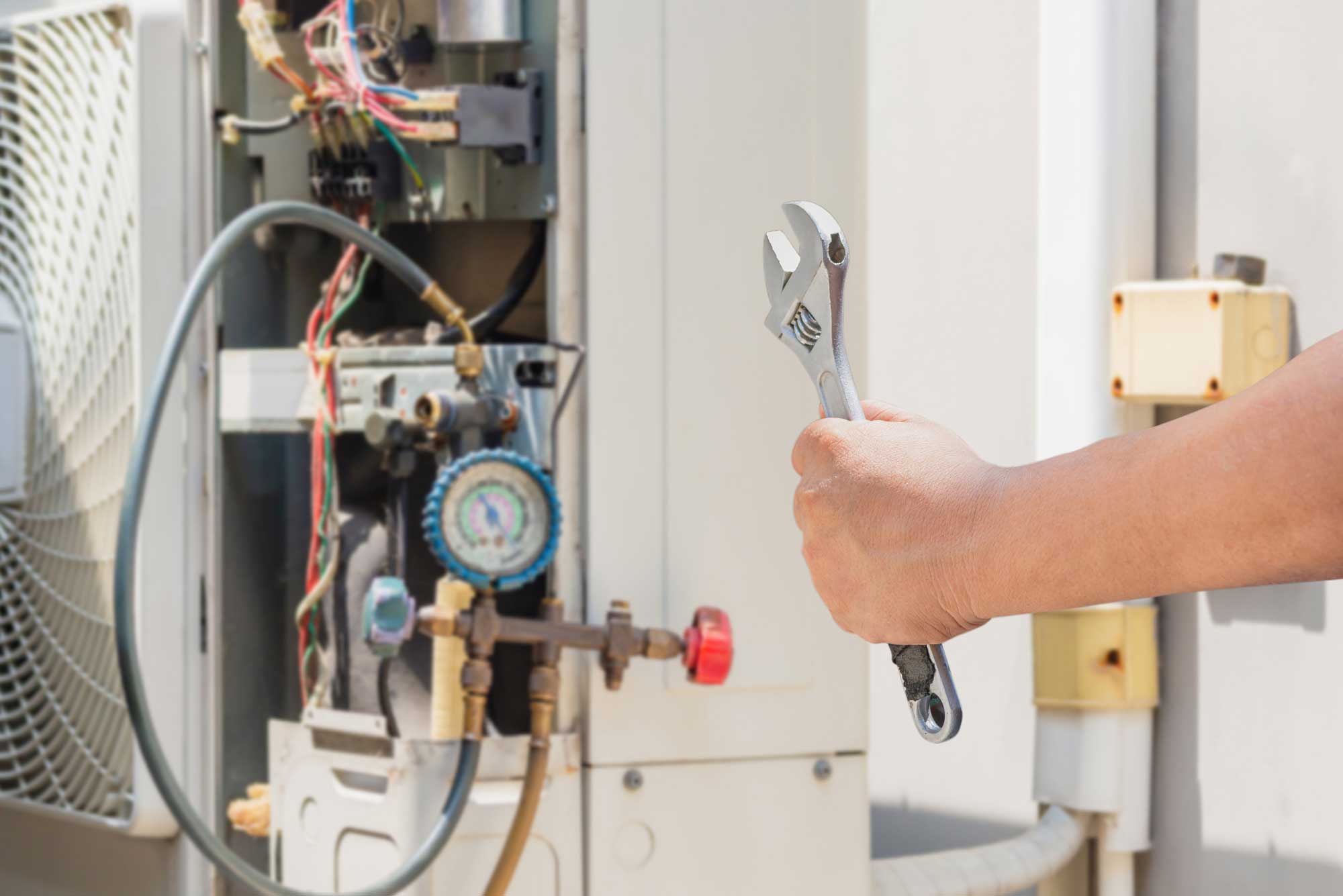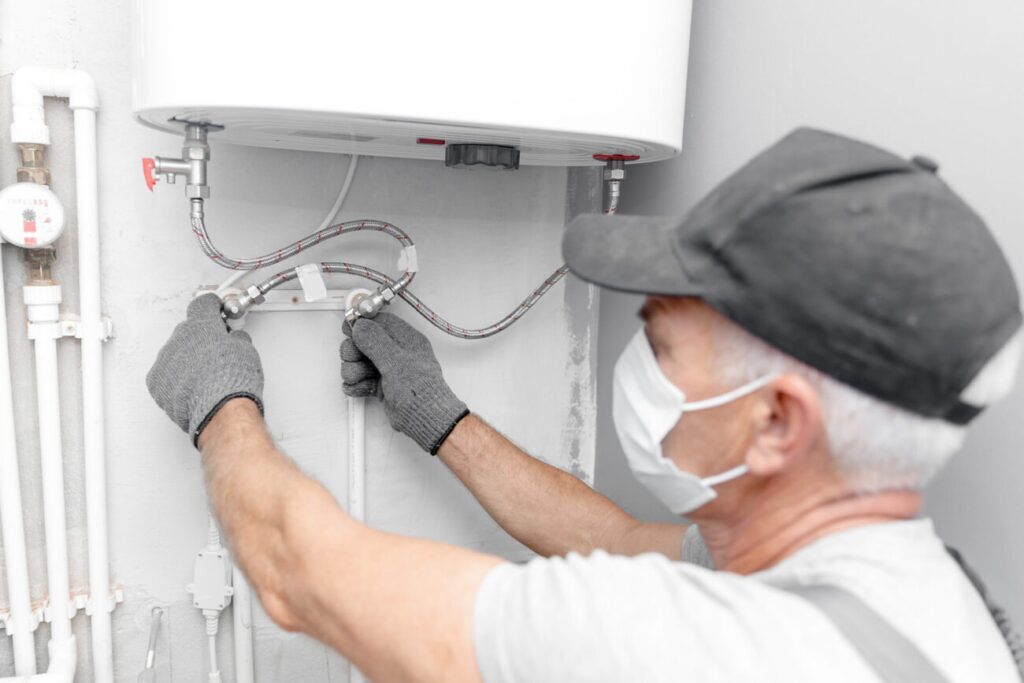When a water heater is whistling, it may indicate high water pressure or a malfunctioning TPR valve. To troubleshoot, check for tight connections and signs of overheating before turning the heater back on.
Are you puzzled by the high-pitched whistling coming from your water heater? Wondering what could be causing this disruptive noise in your home? A whistling water heater can be a sign of underlying issues that need prompt attention and resolution.
We’ll delve into the reasons behind why your water heater might be whistling and how you can troubleshoot the problem effectively. By understanding the common causes of this noise, you can take steps to prevent further complications and ensure your water heater functions smoothly and quietly. Let’s explore the potential reasons behind your water heater’s whistling and find solutions to address this unwelcome sound.


Credit: izzyplumbing.com
Common Water Heater Noises
When your water heater emits a rumbling or growling noise, it could indicate sediment buildup at the bottom of the tank, causing the water to boil and create the noise.
A boiling noise coming from your water heater suggests that the water inside is reaching extremely high temperatures, leading to boiling sounds within the tank.
If your electric water heater is hissing, it may be due to mineral deposits on the heating element, resulting in steam escaping and causing the hissing sound.
A hissing noise in a gas water heater could be a sign of a gas leak or a burner issue, requiring immediate attention to prevent potential hazards.
Cracking or ticking sounds might be due to the expansion and contraction of the tank as it heats up and cools down, indicating potential metal stress or sediment buildup.
A screaming or whistling noise from your water heater could be caused by pressure buildup in the tank, leading to the pressure relief valve opening to release excess pressure.

Credit: chosenrooter.com
Potential Causes Of Whistling Noise
A whistling noise from your water heater might indicate an overheating tank, causing the TPR valve to release pressure. It can also result from high incoming water pressure, signifying a potential issue that needs prompt attention. Regular maintenance and checking for rust or loose connections can help prevent such noises.
Overheating Tank
An overheating tank can cause a whistling noise in your water heater. When the water inside the tank gets too hot, it creates steam that may escape through the pressure relief valve, resulting in a whistling sound.
High Incoming Water Pressure
High incoming water pressure is another common reason for a whistling water heater. Excessive water pressure can put strain on the internal components, causing vibrations and noises, including whistling.
Sediment Buildup
Sediment buildup in the water heater tank can also lead to whistling noises. Over time, minerals and debris accumulate at the bottom of the tank, creating a barrier that disrupts the flow of water and triggers whistling sounds as the water passes through.
Preventive Measures And Fixes
If your water heater is whistling, there are several preventive measures and fixes that can help resolve the issue and avoid potential damage. Here are some recommended steps to address the whistling sound and ensure your water heater functions properly.
Replacing The Anode Rod
Consider replacing the anode rod as it corrodes over time, leading to sediment build-up and whistling noises.
Flush The Water Heater Regularly
Regularly flushing the water heater helps remove sediment and mineral deposits, preventing whistling and ensuring efficient operation.
Adjusting Water Pressure
High water pressure can cause whistling in the water heater. Regulate water pressure to the recommended level to alleviate the noise.
Checking For Rust Or Cracks
Inspect the water heater for rust or cracks, which can lead to leaks and whistling. Address any signs of damage promptly to prevent further issues.
Addressing these key areas can significantly reduce or eliminate the whistling sound in your water heater, ensuring efficient and quiet operation.
If you’re wondering why your water heater is producing unusual noises, you’re not alone. Water heaters can make a variety of sounds, indicating different issues that may need attention. Understanding these noises can help you diagnose and resolve the problem before it escalates. Here are some common noises you might hear from your water heater:
Cracking, Popping, And Rumbling
Cracking, popping, and rumbling sounds can often be heard coming from water heaters. These noises usually occur when mineral deposits build up at the bottom of the tank. As water heats up, it creates steam bubbles that must escape through these deposits, causing the cracking or popping sounds. The rumbling noise, on the other hand, is a result of sediment floating around and getting heated, which can be stirred up by the water flow. Flushing the tank regularly can help reduce these noises and prevent any damage caused by sediment buildup.
Knocking And Hammering
Another common noise that water heaters can make is knocking or hammering. This noise is typically caused by water flow being abruptly stopped or redirected, leading to the pipes and tank expanding and contracting. The sudden change in pressure can create a knocking sound. To address this issue, you may need to check the water pressure, inspect the valves, and ensure there are no obstructions or blockages in the pipes.
Calcium Buildup In Heat Exchanger
Calcium buildup in the heat exchanger is another potential cause of water heater noise. When calcium or other minerals accumulate on the surface of the heat exchanger, it can create a insulating layer that interferes with the transfer of heat. This can result in the water heater working harder and making strange noises. Regular maintenance and descaling can help prevent calcium buildup and ensure efficient operation of the heat exchanger.
Noises From Tankless Water Heaters
Tankless water heaters are known for their energy efficiency and space-saving design. However, they can also produce their own unique noises. These noises may include whistling, gurgling, or even a metallic clanging sound. These noises can be caused by factors such as improper venting, low gas pressure, or even a malfunctioning component. It’s essential to have a professional diagnose and address the issue to ensure proper functioning of the tankless water heater.
Troubleshooting Other Noises In Hvac Systems
If your water heater is emitting a loud whistling noise, it may be due to high water pressure. To troubleshoot, ensure all connections are secure, check for rust indicating a tank crack, and monitor the TPR valve for pressure release.
Regular maintenance can prevent such noises.
Dust And Debris In Ductwork
If you hear strange whistling or hissing noises coming from your HVAC system, it could be a sign of dust and debris buildup in your ductwork. Over time, dust and dirt can accumulate in the ducts, causing blockages and airflow restrictions. These blockages can disrupt the smooth flow of air through the system, resulting in unusual noises. To troubleshoot this issue, you need to clean the ductwork thoroughly.
Clogged Air Filters
A clogged air filter can also contribute to whistling sounds in your HVAC system. Air filters are responsible for trapping dust, dirt, and other particles, preventing them from entering the system. However, when these filters become clogged with too much debris, it can obstruct the airflow, causing the system to work harder and produce whistling noises. To fix this problem, regularly check and replace the air filters as recommended by the manufacturer.
Closed Hvac System Doors
In some cases, whistling noises in your HVAC system may be due to closed system doors. These doors are responsible for maintaining the proper flow of air throughout the system. If any of these doors are closed or partially closed, it can create air pressure imbalances and cause whistling sounds. Check all the doors and ensure they are fully open and unobstructed to allow for smooth airflow.
:max_bytes(150000):strip_icc()/water-heater-problem-making-noises-4103881-hero-c95f2783e8c94bc8972b4918ceca1946.jpg)
Credit: www.thespruce.com
Frequently Asked Questions On Why Is My Water Heater Whistling
How Do I Stop My Water Heater From Whistling?
To stop water heater whistling, check and tighten connections. Look for rust or cracks in tank. If issue persists, overheating may be causing TPR valve to release pressure.
Why Is My Water Heater Making A High Pitched Sound?
A high-pitched sound from your water heater may indicate high water pressure. This can lead to issues and should be fixed promptly. Water heaters have a safety valve to relieve temperature and pressure. Check for tight connections and rust, and consider overheating as a possible cause.
How Do I Stop My Heater From Whistling?
To stop your heater from whistling, check all connections, tighten them if necessary, and inspect for rust or cracks. If everything appears fine but the whistling persists, it may be due to overheating. In this case, the TPR valve is likely releasing pressure.
Address this issue promptly. A high pitched whistling sound can also be caused by high incoming water pressure. This should be diagnosed and repaired promptly.
What Does A Whistling Heater Mean?
A whistling heater could indicate a problem with the TPR valve. Check for tight connections and rust in the tank. If everything seems fine but the heater still whistles, it may be overheating and causing the valve to release pressure.
Additionally, a high-pitched noise could be caused by high water pressure. It’s important to diagnose and repair the issue promptly.
Why Is My Water Heater Whistling?
If your water heater is making a high-pitched whistling sound, it could be due to high water pressure.
Conclusion
If your water heater is whistling, the cause could be an overheating tank or high water pressure. To resolve the issue, check for rust or loose connections and ensure proper airflow. Regular maintenance such as flushing the tank can prevent sediment buildup and noise.
Contact a professional if the problem persists.